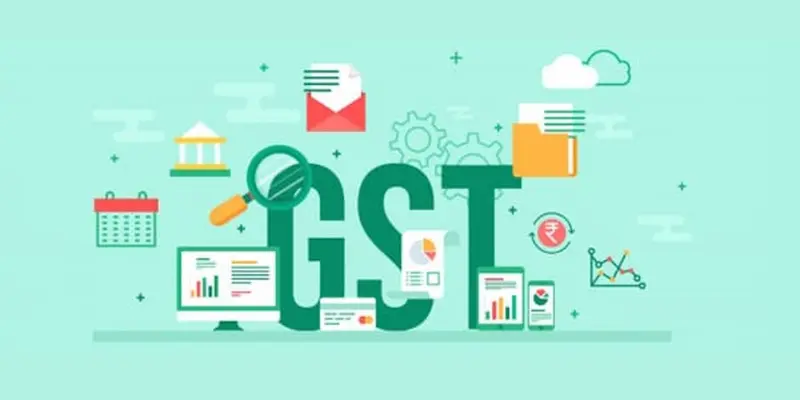
Goods and Services Tax (GST) has transformed taxation by unifying various indirect taxes into a single system. However, GST compliance has challenges, including mismatched invoices, fraudulent claims, and reconciliation errors. These errors can lead to financial losses, penalties, and increased scrutiny from tax authorities. Blockchain technology, known for its transparency, security, and decentralization, has the potential to reduce GST errors significantly. By leveraging blockchain, businesses and governments can ensure accurate, efficient, and fraud-free GST compliance. Enrolling in GST Training in Chennai can help professionals and businesses understand the role of blockchain in GST compliance and stay updated with the latest tax regulations.
Understanding GST Errors
GST errors can arise for multiple reasons, including human mistakes, incorrect tax calculations, invoice mismatches, and fraudulent input tax credit (ITC) claims. Some common GST-related errors include:
- Invoice mismatches: Discrepancies between the seller’s and buyer’s records.
- Duplicate claims: Claiming ITC for the same invoice multiple times.
- Fraudulent transactions: Fake invoices generated to claim undue tax benefits.
- Data manipulation: Altering invoices or tax data after filing.
- Reconciliation issues: Errors in matching ITC claims with tax filings.
These issues create financial risks for businesses and burden tax authorities with increased audit and compliance measures. A checklist for GST Software Providers should be considered to ensure seamless compliance and error-free tax filing.
How Blockchain Works in GST Compliance
Blockchain is a decentralized digital ledger that records transactions in a secure and immutable manner. When applied to GST, blockchain technology ensures that every transaction is time-stamped, encrypted, and permanently recorded. Here’s how blockchain can enhance GST processes:
- Immutable Ledger: Transactions recorded on the blockchain cannot be altered or deleted, ensuring data integrity and reducing tax fraud.
- Real-Time Data Sharing: Businesses, tax authorities, and financial institutions can access GST data in real-time, eliminating discrepancies.
- Smart Contracts for Automation: Smart contracts can automate GST calculations, ITC claims, and tax payments, minimizing manual errors.
- Transparent Reconciliation: Blockchain enables automatic invoice reconciliation, reducing mismatches and duplicate claims.
- Enhanced Security: Cryptographic encryption protects GST-related data from unauthorized access or tampering.
Ways Blockchain Can Reduce GST Errors
1. Automated GST Filing and Compliance
Blockchain-integrated GST systems can automate tax filings by pulling transaction data directly from invoices. This reduces human errors in tax calculations and prevents incorrect GST filings. Since blockchain transactions are time-stamped and immutable, businesses cannot manipulate tax records post-filing. Enrolling in a Blockchain Course in Chennai can provide professionals with the knowledge needed to implement blockchain-based GST solutions effectively.
2. Error-Free Invoice Matching
One of the major GST challenges is matching invoices between suppliers and buyers. Blockchain ensures that each invoice is uniquely recorded and securely stored. Since all parties have access to the same tamper-proof data, mismatched invoices are automatically flagged, reducing errors.
3. Prevention of Fake Invoices and Fraudulent ITC Claims
Blockchain technology prevents fraudulent transactions by verifying each invoice before tax credits are claimed. Fake invoices, a common issue in GST fraud, cannot be generated because every transaction is linked to a verified business entity. Tax authorities can cross-check ITC claims in real-time, ensuring only legitimate claims are processed.
4. Seamless Reconciliation of GST Returns
Reconciliation of GST returns is time-consuming and error-prone. Blockchain allows automatic reconciliation by matching ITC claims with actual transactions on the ledger. This eliminates the need for manual intervention and reduces disputes between tax authorities and businesses. Enrolling in a Training Institute in Chennai can help professionals gain expertise in blockchain-based GST reconciliation processes.
5. Increased Transparency and Audit Efficiency
Since blockchain provides a transparent and unalterable record of transactions, tax authorities can conduct audits more efficiently. Businesses can also self-audit their GST filings, ensuring compliance and reducing the risk of penalties due to errors or omissions.
6. Enhanced Security Against Data Tampering
Traditional GST systems are vulnerable to data manipulation, where businesses may alter invoices or tax filings after submission. Blockchain prevents this by encrypting data and ensuring that it cannot be modified once a transaction is recorded. This feature strengthens the overall credibility of GST records. GST knowledge in corporate professionals can benefit from understanding these blockchain applications to ensure compliance and efficiency in tax operations.
Challenges in Implementing Blockchain for GST
While blockchain offers multiple benefits, its implementation in GST compliance faces particular challenges:
- Integration with Existing Tax Systems: Many businesses use legacy tax software, making blockchain integration complex.
- High Initial Costs: Setting up blockchain infrastructure requires investment in technology and training.
- Regulatory Framework: Governments must establish clear guidelines for GST adoption for blockchain.
- Data Privacy Concerns: Although blockchain ensures security, businesses may hesitate to share sensitive financial data on a decentralized network.
Future of Blockchain in GST
Despite these challenges, blockchain is gaining traction in taxation and finance. Governments worldwide are exploring blockchain for tax compliance, fraud prevention, and secure digital transactions. In India, integrating blockchain with the GST Network (GSTN) can significantly enhance tax administration and reduce business compliance burdens.
Blockchain technology holds immense potential to transform GST compliance by reducing errors, enhancing transparency, and preventing tax fraud. Automated reconciliation, secure invoicing, and real-time data sharing can ensure seamless GST filings and minimize compliance risks. While challenges exist, the future of blockchain in GST is promising, paving the way for a more efficient and error-free taxation system. Legal Consequences of Blockchain Technology should also be considered when integrating blockchain into GST compliance. Businesses and governments should collaborate to harness blockchain’s power, ensuring a secure and trustworthy tax ecosystem.
Also Check: Exploring Blockchain Role in PhoneGap Mobile Solutions
